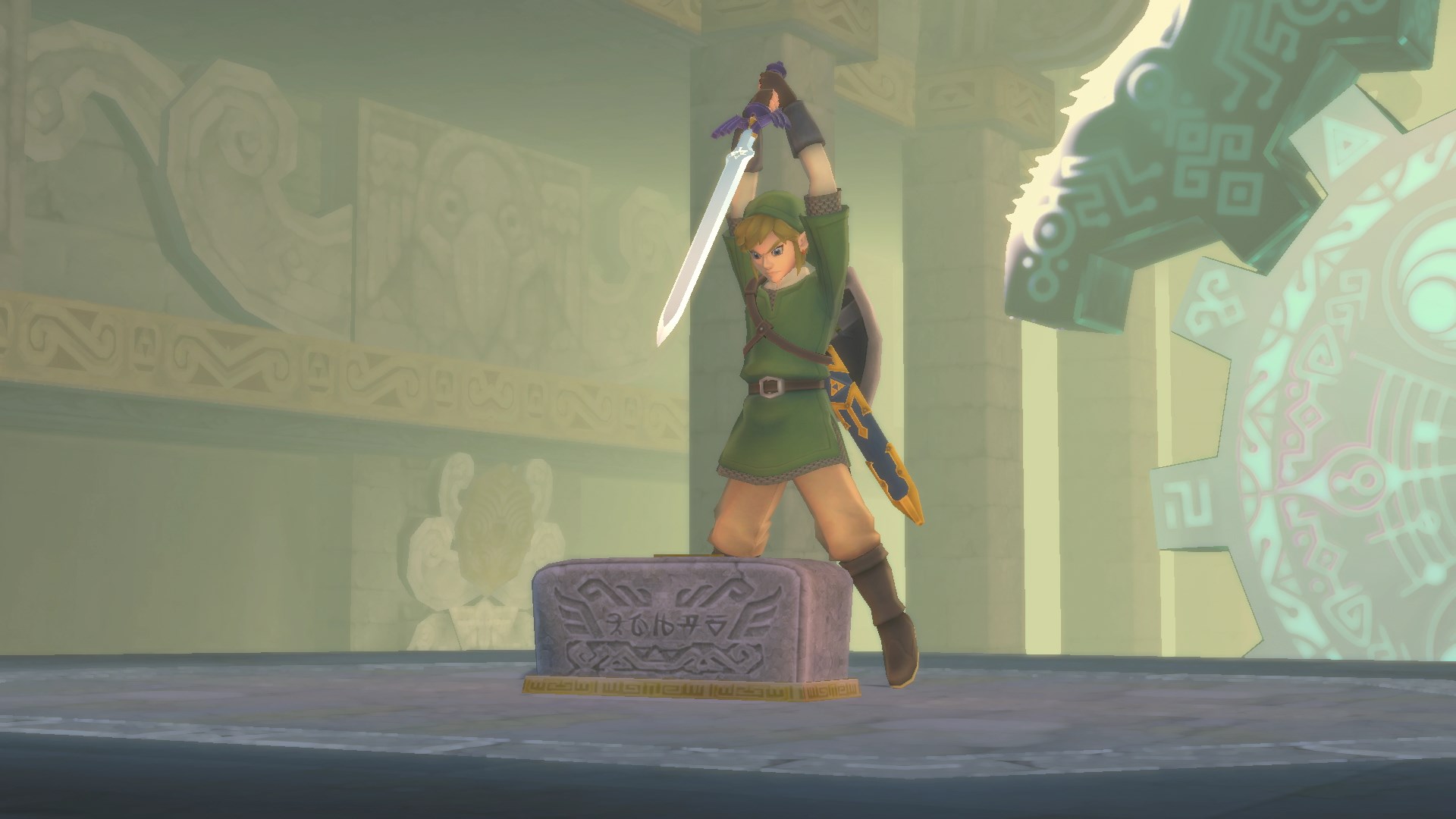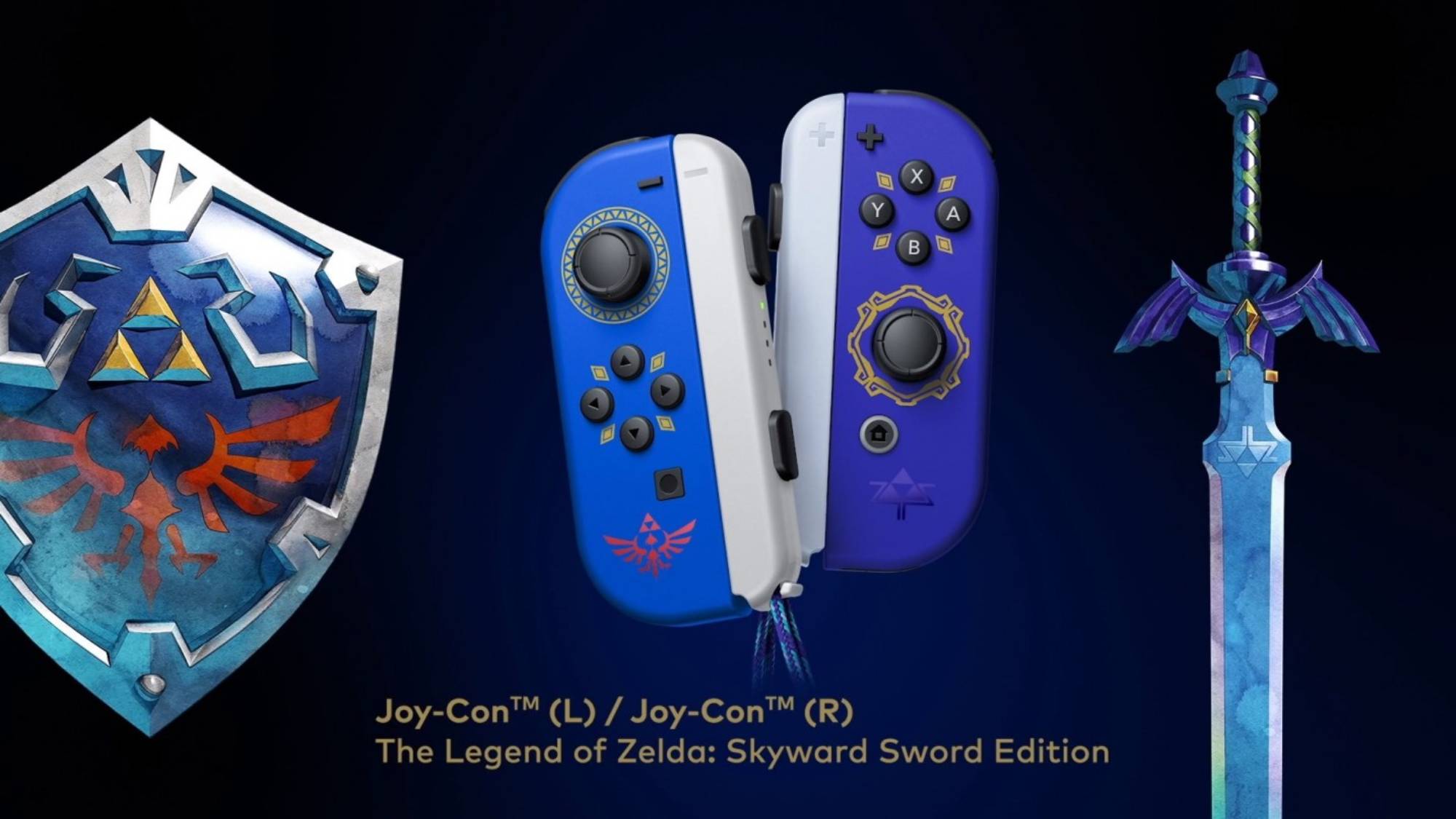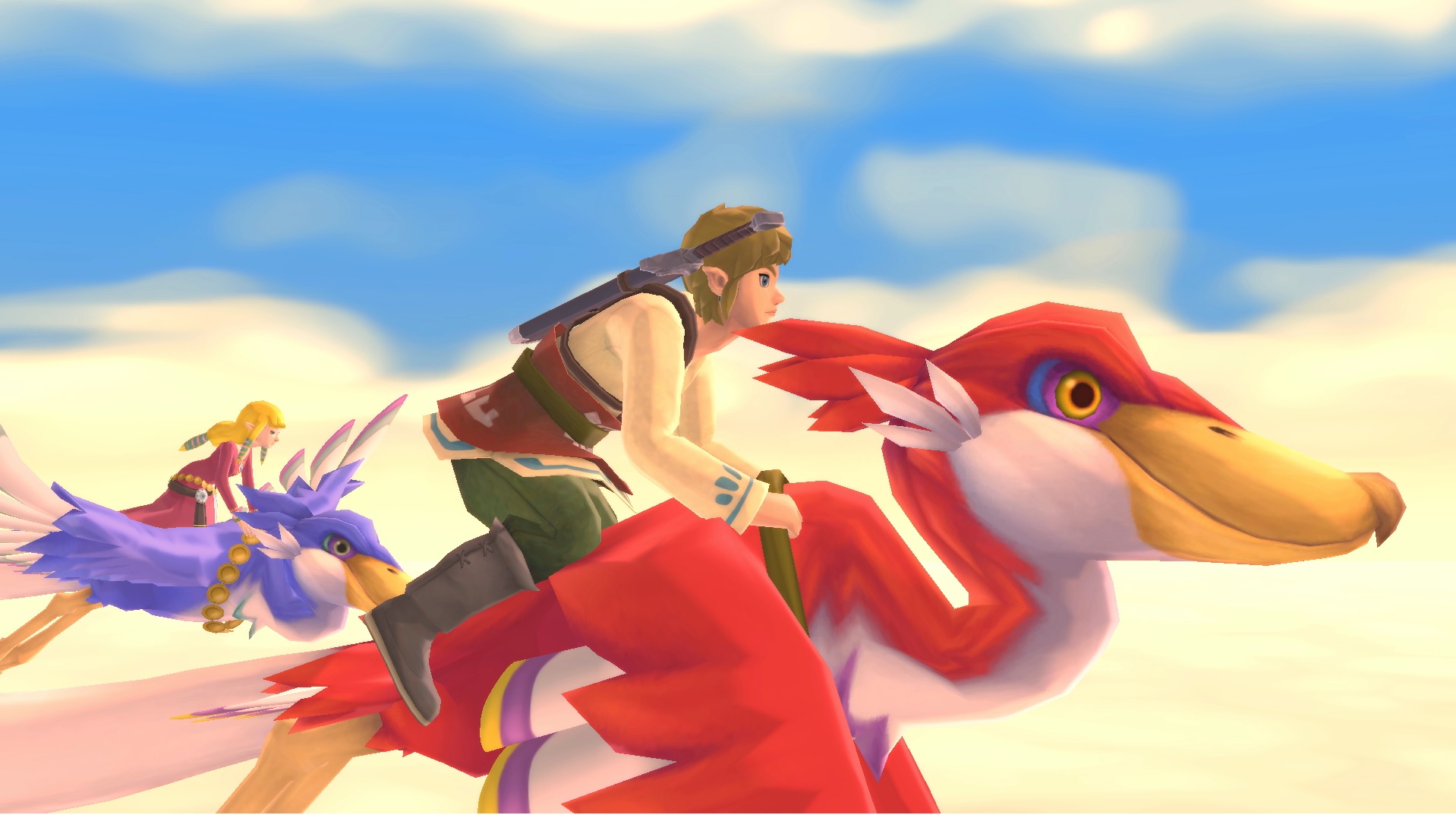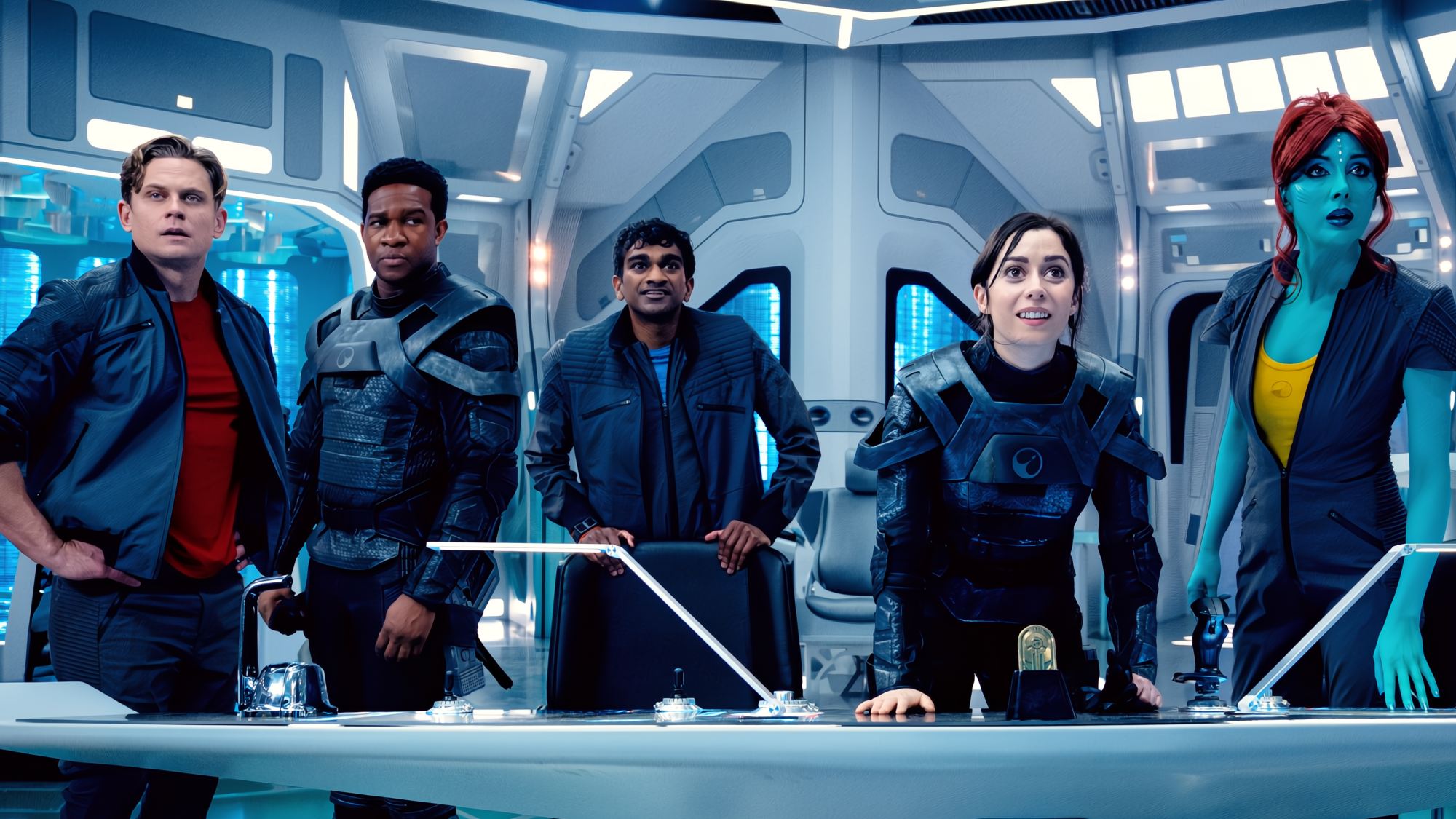Zelda: Skyward Sword HD is worth a second chance — if you disable motion controls
Zelda: Skyward Sword HD plays much better with a regular controller

When Nintendo first announced The Legend of Zelda: Skyward Sword HD, I wrote about how it was the perfect entry in the series to remaster. The original Skyward Sword was an ambitious and creative game, hobbled by an obnoxious motion control scheme that wasn't as accurate as it needed to be. If Skyward Sword HD could nail button-based controls, I argued, then the game would really be something special.
Having completed my Skyward Sword HD review, I am pleased to inform you that I was mostly correct. While the game's controller-based setup isn't perfect — especially when it comes to swordfighting — it's a huge improvement from the finicky, demanding motion controls in the original game.
- Play the best Switch games
- Learn where to play every Legend of Zelda game
More importantly, it turns Skyward Sword from an expansive tech demo into a full-fledged traditional Zelda game. And in an era dominated by the very different Breath of the Wild, that's something we need now more than ever.
A history of motion controls

To briefly recap some arguments I made about The Legend of Zelda: Skyward Sword a few months back:
- It's arguably one of the best games in the series
- The Wii Motion Plus controls made the game unnecessarily frustrating to play
- A normal controller would make the game a lot more enjoyable/accessible
The only trouble was that I wasn't quite ready to put my money where my mouth was.
Nintendo sent Tom's Guide a review copy of Skyward Sword HD a week ago, and I installed the game as soon as the workday ended. I knew that I'd have to play the game with all three control schemes — motion controls, standard controller and handheld — in order to review it fairly. The only question was, how would I spend the bulk of my time with the game? As I knew from playing the game back in 2011, how a game controls can color your perception of the title for years to come.
At first, I decided that since Nintendo initially designed the game with motion controls in mind, that was probably the "right" way to play. Besides, I reasoned, it had been 10 years since the Wii Motion Plus. Surely, the Switch's motion controls were much better than what Nintendo offered a decade ago.
I fired up the game, and promptly remembered why I'd lamented the control scheme back in 2011. For those who haven't played Skyward Sword, you use an analog stick to move Link around, but almost everything else relies on motion controls. You use motion controls to swing a sword, pilot your riding-bird, swim underwater, fire projectiles, and even aim yourself when you jump off of tall structures. And because the Switch doesn't have a dedicated sensor bar above your TV, like the Wii did, this control scheme is even less accurate now than it was back in 2011.
To say that the motion controls in Skyward Sword are "infuriating" is putting it mildly. Every single time I rested my Joy-Cons in my lap, they lost their position onscreen, meaning I'd have to reset the gyro every time I wanted to toss a bomb or ride my Loftwing. My controllable beetle tool flew around in circles; I couldn't get my Loftwing to turn left; I fell directly past collectable treasure chests and slammed into the ground. At times, I gave up on optional objectives altogether, because it simply wasn't worth the frustration.
How I learned to stop worrying and love the Pro Controller

It wasn't until just after the second dungeon that I realized there was a better way to play the game. Around this time, my Joy-Cons ran out of battery, and I figured it would be a good opportunity to see how Skyward Sword HD ran in handheld mode. The first thing I had to do was adjust to the new control scheme, which used the left analog stick for aiming and flying, and the right analog stick to control the direction of your sword.
At first, I was sure I'd hate using the right analog stick for directional swordplay, since it meant I couldn't freely rotate the camera. But as I played through Skyward Sword HD''s third dungeon, I realized that having limited control over the camera wasn't so bad; in fact, it was no worse than the N64 Zelda entries, or their 3DS remasters.
Besides, playing in handheld mode solved all of my traversal woes in one fell swoop. My Loftwing and beetle went exactly where I told them to; my cursor no longer flew in circles every time I tried to aim a bomb or a slingshot. Not only was I having a better time; I was actually playing more effectively, losing less health and consuming fewer items.
While I'd played with motion controls, Skyward Sword HD was a tense, stressful experience, where I was fighting the game every step of the way.
After my Joy-Cons finished recharging, I picked up my Pro Controller, and have been playing the game that way ever since. While swordfighting is a little tougher, every other part of the game is immeasurably better. In fact, a few hours after I started playing with the Pro Controller, I had a startling realization: I was leaning back on the couch.
While I'd played with motion controls, Skyward Sword HD was a tense, stressful experience, where I was fighting the game every step of the way rather than enjoying it. With the button-based control scheme, I found myself thinking carefully about the puzzles and exploring each new area thoroughly, rather than wondering how I was going to survive the next encounter that required absolute precision from an imprecise peripheral.
While I'm sure that some players will still prefer Skyward Sword HD with motion controls (they are admittedly more fun for combat), this is the way I wanted to play the game 10 years ago. Being able to use a regular controller makes Skyward Sword HD feel like a regular Zelda game, rather than "that weird Zelda game where the motion controls really got in the way."
The Legend of Zelda: Breath of the Wild is the Switch's star attraction, as well it should be. But what Breath of the Wild gained in scope, it lost in tradition. If you take away the intricate dungeons, interconnected puzzles, clever accessories, sprawling towns and deliberate difficulty curve, what's left of the beloved 3D Zelda formula?
With Skyward Sword HD on Switch, players no longer have to choose. There's room enough on Nintendo's innovative console to both break and embrace Zelda's conventions. And, now that Skyward Sword feels comfortable to play, it can finally take its place among the best entries in the franchise.
Sign up to get the BEST of Tom's Guide direct to your inbox.
Get instant access to breaking news, the hottest reviews, great deals and helpful tips.
Marshall Honorof is a senior editor for Tom's Guide, overseeing the site's coverage of gaming hardware and software. He comes from a science writing background, having studied paleomammalogy, biological anthropology, and the history of science and technology. After hours, you can find him practicing taekwondo or doing deep dives on classic sci-fi.

